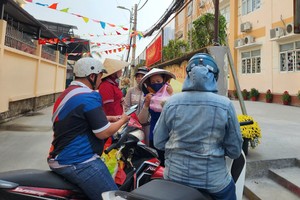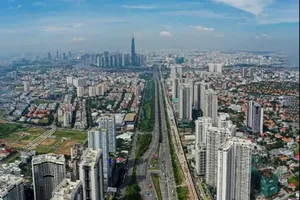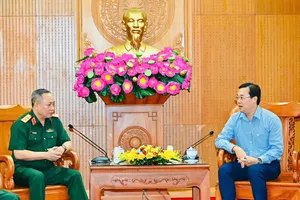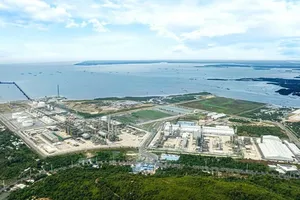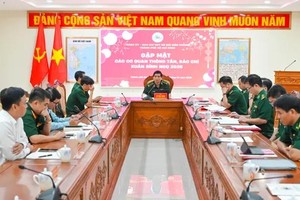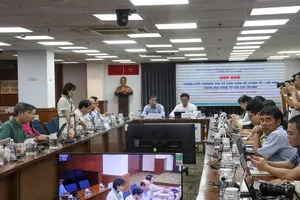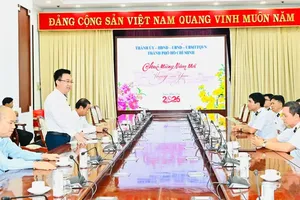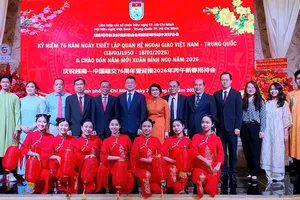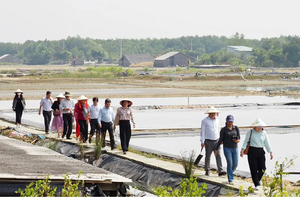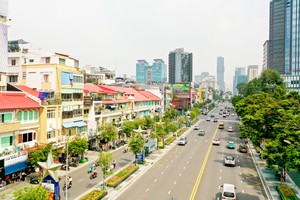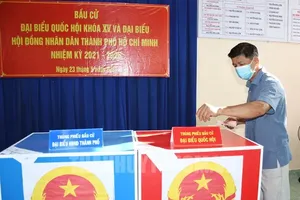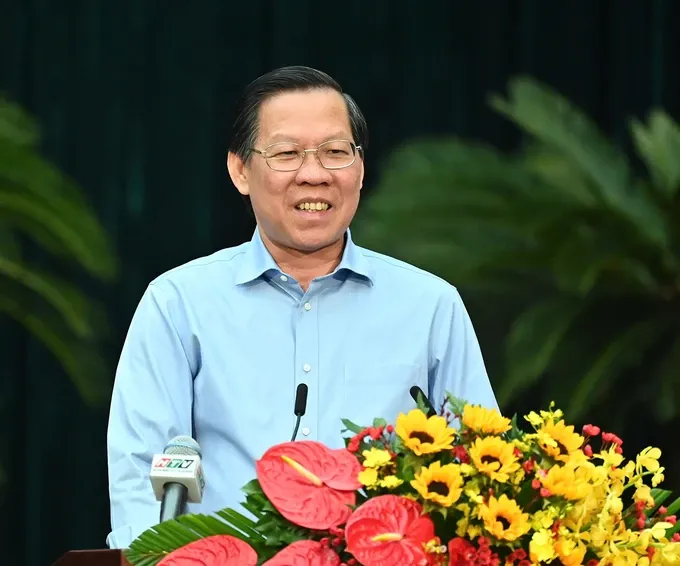
Chairman of the Ho Chi Minh City People's Committee Phan Van Mai emphasized that 2025 holds significant importance for Ho Chi Minh City, a year marked by a series of crucial national and city-level events. He expressed confidence that through the unwavering determination of the entire political system and the collective efforts and consensus of the city's citizens and businesses, Ho Chi Minh City will successfully navigate challenges and stand united with the nation in embarking upon a new era of national growth and prosperity.
The year 2024 ended with very encouraging socio-economic results. The most notable is that the city's budget revenue exceeded VND500 trillion (US$19.63 billion). This is a great effort and contribution from city dwellers and its business community.
The second key indicator, namely the growth of the Gross Regional Domestic Product (GRDP), is also indicative of positive economic trends, with an anticipated growth rate of at least 7.17 percent. Although this rate may not fully meet the established target, it nevertheless reflects the city's robust economic momentum and provides a solid foundation for striving towards double-digit growth in the forthcoming year of 2025 and beyond.
According to him, a notable achievement in 2024 has been the city's proactive approach to addressing project backlogs and obstacles. This has resulted in the successful restart, completion, and commissioning of numerous projects, which are expected to contribute significantly to the city's economic growth and generate substantial revenue for the city budget.
The city is also preparing many large projects, such as the Ring Road 4 project, Can Gio international transit port, urban railway projects, the international financial center project in Ho Chi Minh City.
In addition to economic growth, the city has witnessed a flourishing of cultural, social, and foreign affairs activities, creating a joyful and stimulating environment that enhances the quality of life for residents. Notably, significant strides have been made in ensuring political security, maintaining social order and public safety, and fostering a stable environment conducive to both resident well-being and investment development. Building upon these positive outcomes in 2024, the city must now accelerate the efforts to achieve double-digit growth in 2025.
The issue of double-digit growth in 2025 and the following years has been raised for a long time and has been prepared for. Amongst which, the city will focus on three groups of key tasks and solutions.
Mobilizing resources for development investment is crucial, with a target of VND500,000 billion in total social investment for 2025. This includes VND100,000 billion in public investment, accounting for 20 percent of the total. To achieve this, the city must prioritize the completion of stalled and delayed projects to maximize their contribution to economic growth.
Concurrently, it is essential to advance additional investment initiatives, encompassing both domestic and international funding. The city will implement strategies to draw investment through the public-private partnership (PPP) framework, in alignment with the guidelines set forth in the National Assembly-approved Resolution 98/2023/QH15.
The city aims to prioritize the elimination of barriers, address outstanding projects, and execute meaningful administrative reforms. By fostering a transparent investment climate, the city will work to dismantle obstacles, pinpoint critical sectors for investment promotion, and carry out public investment initiatives.
To achieve these goals, the city will implement three sets of solutions concurrently, alongside additional strategies. The overarching objective is to mobilize resources and stimulate cash flow into the economy, targeting a growth rate of 10 percent by 2025.
He consistently highlighted the importance of innovating work methods and enhancing both discipline and administrative rigor. In the context of administrative reform, the city's leadership has recognized the necessity of fostering a sense of responsibility, modernizing approaches, and reinforcing the effectiveness and efficiency of administrative bodies, as well as the roles of heads, civil servants, and public employees directly engaged in operational tasks.
He disclosed that the Ho Chi Minh City People's Committee has recently instructed the Department of Home Affairs and the Office of the Ho Chi Minh City People's Committee to evaluate the coordination regulations among various departments, sectors, districts, and towns. This review aims to clarify the responsibilities of leaders and civil servants, while also establishing a clear process and timeline for resolving procedures.
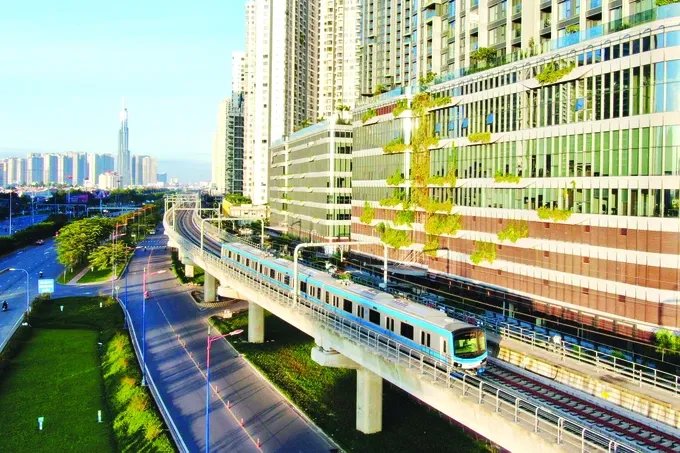
The city is committed to clearly defining responsibilities, processes, and timelines for resolution by 2025. In line with this commitment, the city will emphasize the importance of addressing outstanding cases, issues, and incomplete projects. Chairman Mai believes that with a focused, scientific, and methodical approach, these challenges can be overcome, leading to the successful implementation of numerous projects that will stimulate economic growth and generate employment opportunities for city dwellers.
A significant achievement has been the successful resolution of numerous long-standing projects. Notably, the completion of Metro Line 1 after 17 years and Nguyen Van Linh - Nguyen Huu Tho Tunnel after 7-8 years of development are testaments to the city's commitment to overcoming challenges. These completed projects will undoubtedly contribute significantly to the city's future progress.
The southern metropolis is undertaking several key projects that are pivotal for its growth and that of the Southeast region, which is a vital economic area in the southern part of the country. Notable initiatives include the Ring Road 4, Ring Road 2, and Ring Road 3 projects.
The city is also in the process of finalizing the Ring Road 2 and Ring Road 3 projects, which will enhance connectivity with the highways surrounding the city. This will lead to a more integrated transportation system and improved regional traffic connections.
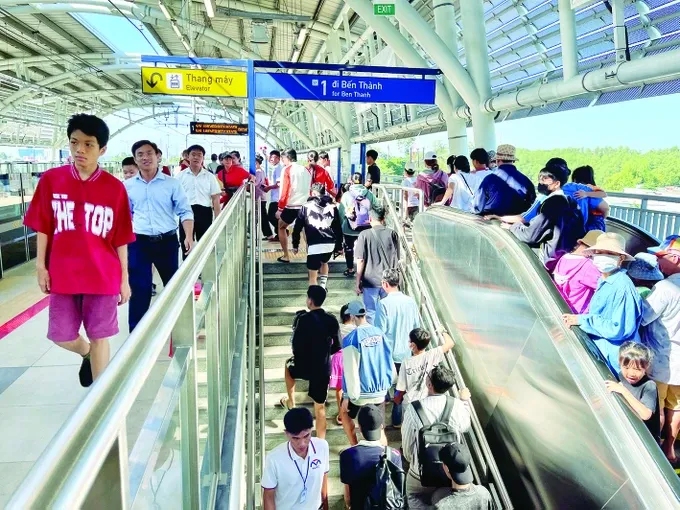
Furthermore, the development of Can Gio international transit port, the urban railway projects, and the international financial center in Ho Chi Minh City are expected to serve as significant catalysts for the city's and the region's future development.
Additionally, addressing cultural and social issues, as well as improving the livelihoods of the city's over 10 million residents, many of whom are migrants from other areas, remains a critical challenge for Ho Chi Minh City.
Housing presents a significant challenge. The city is not only tasked with relocating over 46,000 households situated on and near canals but is also prioritizing its social housing initiative. In collaboration with HCMC Labor Federation, the city is rolling out a housing program aimed at providing rental options for workers and students.
Moreover, efforts are underway to enhance urban aesthetics, which will contribute to improving the quality of life in residential areas while addressing issues such as flood control, pollution mitigation, and traffic congestion. Recently, the southern largest city has also introduced policies targeting healthcare, education, and social security.
The city is currently reviewing a comprehensive policy on tuition fee exemptions and reductions, exploring additional support measures for the education and healthcare sectors to enhance overall healthcare access.
Furthermore, city administrations are working towards implementing specific policies to improve social security benefits. In commemoration of the 50th anniversary of the liberation of the South and the reunification of the country, it is imperative that each citizen tangibly experience the fruits of the development. Prioritizing education, healthcare, social security, and social welfare is crucial to achieving this goal, concluded Chairman Phan Van Mai.
